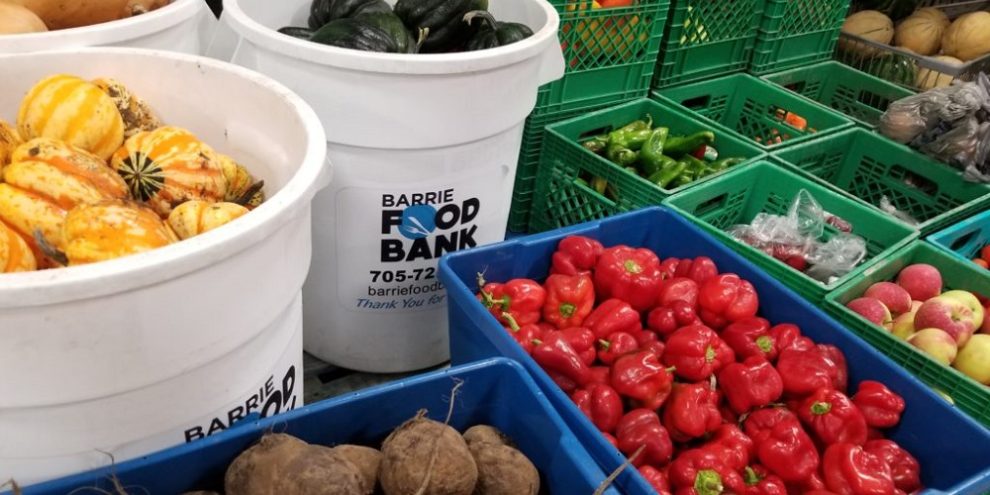
A new survey suggests a growing number of Canadians are struggling with the rising cost of food as prices for basics like pasta, bread and meat all soar.
The poll from Food Banks Canada indicates hunger and food insecurity are increasing across the country, with lower-income Canadians hit the hardest by inflation.
The survey conducted by Mainstreet Research found almost a quarter of Canadians reported eating less than they should because there wasn't enough money for food — a figure that nearly doubled for those earning under $50,000 a year.
It also found that one-in-five Canadians reported going hungry at least once between March 2020 and March 2022.
The automated telephone interview poll surveyed 4,009 adults from Feb. 25th to March 2.
The month of May was the second-busiest on record for the Barrie Food Bank (BFB) with 1,243 households using its services, up 50 per cent from a year ago. The BFB is serving about 2,730 individuals living in those households.
Soaring food prices are also pinching the BFB. The organization did a survey over the last month to see what clients value the most and whether there were opportunities to make some changes.
"We are right-sizing the packages we hand out based on the size of the family," says BFB executive director Sharon Palmer. "We are just trying to make some rationalizations that will save us a bit of money, but also just to make sure the resources are going where they need to be."
The BFB discovered they don't need to give out things like rice and pancake mix as often as they are not used quickly by smaller size families or individuals. Those items are going to be available on-demand for people who want them.
Palmer says they are seeing a lot more people who are on fixed incomes who are struggling, in particular seniors and those on the Ontario Disability Support Program (ODSP).
"You've got people with serious illnesses and senior citizens who are not able to work. These people are really in a very difficult situation and the government has to look at how to support them."
Palmer suggests minimum wage support, guaranteed income supports, and indexing of ODSP to inflation.
"We've also seen more students coming in from Georgian College. These are students working part-time jobs, two part-time jobs, and they are still having difficulty, primarily with rent."
In the past, Palmer says people would come to the BFB just when they needed some support, but now it's becoming more frequent on a month-to-month basis and more people are coming back for that support.
"It's less periodic or temporary support and more of ongoing support," she notes.
March was a record month for the number of food bank clients in Barrie, but just by 100 households from last month.
Financial donations are most helpful to the food bank as it allows the organization to buy high-value items like meat, dairy and produce, while food donations are also needed such as canned goods, soups, stews, and snacks for kids.
Statistics Canada says consumers paid 9.7 per cent more for food at stores in April compared with a year ago, the largest increase since September 1981.
The federal agency says pasta prices were up 19.6 per cent year over year, cereal products rose 13.9 per cent, bread increased 12.2 per cent and fresh fruit costs spiked 10 per cent.
With files from The Canadian Press





